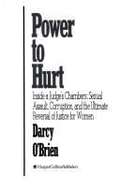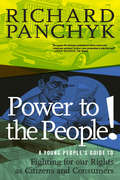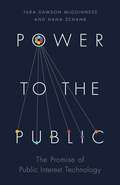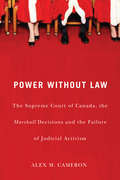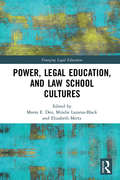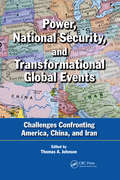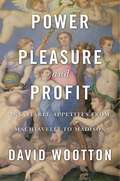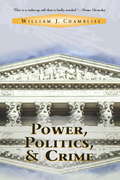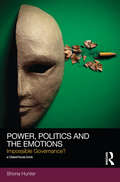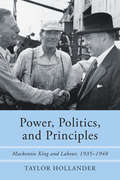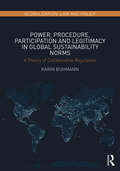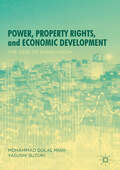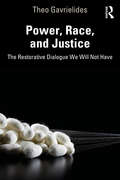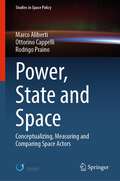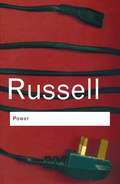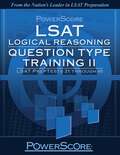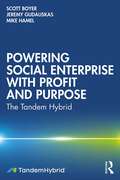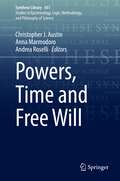- Table View
- List View
Power from Within: A Guide to Success as a Medical Malpractice Defense Expert
by Jeffrey A. Krompier, Esq.There is no end in sight to the frequency with which physicians, nursing professionals and other healthcare providers will become lawsuit targets in our litigious society. While politicians, practitioners, insurance companies and trial attorneys debate the nation’s chronic "malpractice crisis", suits continue to be filed. In addition, once COVID-19 is behind us and the unprecedented public support for health care providers wanes, as it will, it is anticipated that physicians and nurses will become malpractice defendants to a remarkable degree. National legislative fact-finding committees and investigative bodies, which may be charged with the responsibility of pursuing a solution, likely will never achieve a global remedy. Although curtailed by some states, national legislation has not addressed baseless malpractice suites or grossly excessive monetary verdicts. Another approach exists, however. Health care providers can impact the existing system and influence the malpractice environments in a tangible, positive and powerful fashion. Although there will be debate over tort reform in order to bring some degree of protection to the malpractice defendant, individual case success, defined from the defendant’s perspective as a "no-cause" trial verdict, can be realized if well-credentialed and experienced health care professionals are willing to assist the malpractice defense bar as expert witnesses. The benefits to the health care community and the individuals who are willing to participate are innumerable and worth considering.
Power to Hurt
by Darcy O'Brien"His was a sensibility in which sex, hate, and the lust for power were so intertwined as to be indistinguishable." Are you in the mood for reading about a real-life villain whose abuse of power was compared to that of Henry VIII? Look no further than this small community in West Tennessee, where a detestable judge used his influence over jobs and child custody cases to intimidate several women into a state of sexual victimization and emotional paralysis. Darcy O'Brien's writing is eloquently descriptive, with a good feeling for character--such as the heroic, yet humble, figure of an FBI agent who cares enough about the community to involve himself in local problems and bring the judge to trial. Power to Hurt is nominated for a 1997 Edgar Award.
Power to the People!: A Young People's Guide to Fighting for Our Rights as Citizens and Consumers (For Young People Series)
by Richard PanchykAn important and empowering history of and guide to the battle for our right to safe products and conditions--for younger readers.Corporations enter our daily lives from the moment we wake up until we turn off the lights at night. Large Internet companies, health insurance companies, fuel and transportation companies--all play a role in our lives every moment of every single day. And yet what power do we have over their actions or intentions? None, except through redress in a court of law for any harm they may have done. This area of the law is known as torts, from the French word for wrongs.Power to the People! offers a deep understanding of how civil actions work, through many examples and straightforward language for the middle-grade student reader. From Ralph Nader's 1966 law-changing address to Congress on automobile safety (it's thanks to Nader that we wear seat belts) to the decades-long battle to raise awareness of the risks of smoking (cigarette and cigar smoke contains over 7,000 chemicals, and has caused the deaths of more than 2.5 million nonsmokers in the last half-century), readers will learn how we must fight to protect ourselves from corporations that are more concerned with profit than our safety. Corporate America will listen, Panchyk argues, but only if we make ourselves heard. Power to the People! explores all the ways we the people can be powerful, too.
Power to the Public: The Promise of Public Interest Technology
by Hana Schank Tara Dawson McGuinnessA powerful new blueprint for how governments and nonprofits can harness the power of digital technology to help solve the most serious problems of the twenty-first centuryAs the speed and complexity of the world increases, governments and nonprofit organizations need new ways to effectively tackle the critical challenges of our time—from pandemics and global warming to social media warfare. In Power to the Public, Tara Dawson McGuinness and Hana Schank describe a revolutionary new approach—public interest technology—that has the potential to transform the way governments and nonprofits around the world solve problems. Through inspiring stories about successful projects ranging from a texting service for teenagers in crisis to a streamlined foster care system, the authors show how public interest technology can make the delivery of services to the public more effective and efficient.At its heart, public interest technology means putting users at the center of the policymaking process, using data and metrics in a smart way, and running small experiments and pilot programs before scaling up. And while this approach may well involve the innovative use of digital technology, technology alone is no panacea—and some of the best solutions may even be decidedly low-tech.Clear-eyed yet profoundly optimistic, Power to the Public presents a powerful blueprint for how government and nonprofits can help solve society’s most serious problems.
Power without Law
by Alex M. CameronIn Power without Law Alex Cameron enlivens the debate over judicial activism with an unprecedented examination of the details of the Marshall case, analyzing the evidence and procedure in the trial court and tracing the legal arguments through the Court of Appeal to the Supreme Court of Canada. He argues that there were critical defects in the process - the successful argument at the Supreme Court of Canada was never tested in the lower courts, the Crown's expert was precluded from testifying about a vital document, the Court's analysis does not accord with the historical evidence, and the treaty rights are inconsistent with the colonial law of Nova Scotia.
Power without Law: The Supreme Court of Canada, the Marshall Decisions and the Failure of Judicial Activism
by Alex M. CameronThe Supreme Court of Canada decision in the Marshall case asserted sweeping Native treaty rights and generated intense controversy. In Power without Law Alex Cameron enlivens the debate over judicial activism with an unprecedented examination of the details of the Marshall case, analyzing the evidence and procedure in the trial court and tracing the legal arguments through the Court of Appeal to the Supreme Court of Canada. He argues that there were critical defects in the process - the successful argument at the Supreme Court of Canada was never tested in the lower courts, the Crown's expert was precluded from testifying about a vital document, the Court's analysis does not accord with the historical evidence, and the treaty rights are inconsistent with the colonial law of Nova Scotia. Concluding that the Marshall decision was the result of incautious judicial activism, Power without Law challenges us to reconsider the role of our courts in the Charter era.
Power, Justice, and the Environment: A Critical Appraisal of the Environmental Justice Movement
by David Naguib Pellow Robert J. BrulleThis book provides a critical appraisal, examining EJM's tactics and strategies, rhetoric, organizational structure, and resource base. With chapters by both scholars and activists, the book links theory and practice with the aim of contributing to a more effective movement.
Power, Law and the End of Privateering
by Jan Martin LemnitzerThis book offers an exciting new take on the relationship between law and power. The 1856 Declaration of Paris marks the precise moment when international law became universal, and was an aggressive and successful British move to end privateering forever - then the United States' main weapon in case of war with Britain.
Power, Legal Education, and Law School Cultures (Emerging Legal Education)
by Elizabeth Mertz Meera E. Deo Mindie Lazarus-BlackThere is a myth that lingers around legal education in many democracies. That myth would have us believe that law students are admitted and then succeed based on raw merit, and that law schools are neutral settings in which professors (also selected and promoted based on merit) use their expertise to train those students to become lawyers. Based on original, empirical research, this book investigates this myth from myriad perspectives, diverse settings, and in different nations, revealing that hierarchies of power and cultural norms shape and maintain inequities in legal education. Embedded within law school cultures are assumptions that also stymie efforts at reform. The book examines hidden pedagogical messages, showing how presumptions about theory’s relation to practice are refracted through the obfuscating lens of curricula. The contributors also tackle questions of class and market as they affect law training. Finally, this collection examines how structural barriers replicate injustice even within institutions representing themselves as democratic and open, revealing common dynamics across cultural and institutional forms. The chapters speak to similar issues and to one another about the influence of context, images of law and lawyers, the political economy of legal education, and the agency of students and faculty.
Power, National Security, and Transformational Global Events: Challenges Confronting America, China, and Iran
by Thomas A. JohnsonAs the United States struggled to survive the recent recession, China quietly acquired a vast amount of U.S. Treasury bills and bonds. With China now holding so much of America‘s debt, currency valuation issues have already caused tensions between the two superpowers. Couple this with Iran‘s efforts to develop into a nuclear power in an area that l
Power, Pleasure, and Profit: Insatiable Appetities from Machiavelli to Madison
by David WoottonDavid Wootton guides us through four centuries of Western thought to show how new ideas about politics, ethics, and economics stepped into a gap opened up by religious conflict and the Scientific Revolution. As ideas about godliness and Aristotelian virtue faded, theories about the rational pursuit of power, pleasure, and profit moved to the fore.
Power, Politics And Crime
by William J ChamblissIn the United States today, we are on the verge of fulfilling a nightmare scenario. Parents are fearful of letting their children play in their own yards and elderly people are afraid to leave their homes. The bogeyman in this rampant panic about crime is the young black male, who, in the media and public image, is a "superpredator” lurking on every street corner ready to attack any prey that is vulnerable. But is crime in America really as bad as the public has been made to believe?Power, Politics, and Crime argues that the current panic over crime has been manufactured by the media, law enforcement bureaucracies, and the private prison industry. It shows how the definition of criminal behavior systematically singles out the inner-city African American. But urban minorities aren’t the only victims. Although crime rates have been declining for 25 years, vast amounts of money pour into the criminal justice-industrial complex, diverting scarce resources from other social services such as education, social welfare, and health care. While in recent years downsizing has affected almost every segment of the public sector, the criminal justice bureaucracies have seen an unprecedented expansion. Through ethnographic observations, analysis of census data, and historical research, William Chambliss describes what is happening, why it has come about, and what can be done about it. He explores the genesis of crime as a political issue, and the effect that crime policies have had on different segments of the population. The book is more than a statement about the politics of crime and punishment--it’s a powerful indictment of contemporary law enforcement practices in the United States. In addition to updating the data the author has added a discussion of the "declining crime rate. " Contrary to presentations in the media and by law enforcement agencies, the rate has been declining for over 25 years and therefore cannot be attributed to any "get tough on crime" policies so dear to the hearts of prosecutors and politicians. Chapter Seven, "Crime Myths and Smokescreens" has been completely revised and updated. Updates include a discussion of the recent scandal in the Los Angeles Police Department which has resulted in criminal charges against police officers and the release of numerous convicted felons because of falsified evidence and testimony on the part of police officers. The attack on Louima in the police station in New York as well as the shooting of Diallo are discussed in some detail as well as other recent exposures of police brutality and corruption. The sections on white collar, corporate, and state crimes have been updated and recent examples added to the text.
Power, Politics and the Emotions: Impossible Governance? (Social Justice)
by Shona HunterHow can we rethink ideas of policy failure to consider its paradoxes and contradictions as a starting point for more hopeful democratic encounters? Offering a provocative and innovative theorisation of governance as relational politics, the central argument of Power, Politics and the Emotions is that there are sets of affective dynamics which complicate the already materially and symbolically contested terrain of policy-making. This relational politics is Shona Hunter’s starting point for a more hopeful, but realistic understanding of the limits and possibilities enacted through contemporary governing processes. Through this idea Hunter prioritises the everyday lived enactments of policy as a means to understand the state as a more differentiated and changeable entity than is often allowed for in current critiques of neoliberalism. But Hunter reminds us that focusing on lived realities demands a melancholic confrontation with pain, and the risks of social and physical death and violence lived through the contemporary neoliberal state. This is a state characterised by the ascendency of neoliberal whiteness; a state where no one is innocent and we are all responsible for the multiple intersecting exclusionary practices creating its unequal social orderings. The only way to struggle through the central paradox of governance to produce something different is to accept this troubling interdependence between resistance and reproduction and between hope and loss. Analysing the everyday processes of this relational politics through original empirical studies in health, social care and education the book develops an innovative interdisciplinary theoretical synthesis which engages with and extends work in political science, cultural theory, critical race and feminist analysis, critical psychoanalysis and post-material sociology.
Power, Politics, and Paranoia
by Jan-Willem van Prooijen Paul A. M. van LangePowerful societal leaders - such as politicians and Chief Executives - are frequently met with substantial distrust by the public. But why are people so suspicious of their leaders? One possibility is that 'power corrupts', and therefore people are right in their reservations. Indeed, there are numerous examples of unethical leadership, even at the highest level, as the Watergate and Enron scandals clearly illustrate. Another possibility is that people are unjustifiably paranoid, as underscored by some of the rather far-fetched conspiracy theories that are endorsed by a surprisingly large portion of citizens. Are societal power holders more likely than the average citizen to display unethical behaviour? How do people generally think and feel about politicians? How do paranoia and conspiracy beliefs about societal power holders originate? In this book, prominent scholars address these intriguing questions and illuminate the many facets of the relations between power, politics and paranoia.
Power, Politics, and Principles: Mackenzie King and Labour, 1935-1948 (G - Reference, Information and Interdisciplinary Subjects)
by Taylor HollanderSet against the backdrop of the U.S. experience, Power, Politics, and Principles uses a transnational perspective to understand the passage and long term implications of a pivotal labour law in Canada. Utilizing a wide array of primary materials and secondary sources, Hollander gets to the root of the policy-making process, revealing how the making of P.C. 1003 in 1944, a wartime order that forced employers to the collective bargaining table, involved real people with conflicting personalities and competing agendas. Each chapter of Power, Politics, and Principles begins with a quasi-fictional vignette to help the reader visualize historical context. Hollander pays particular attention to the central role that Mackenzie King played in the creation of P.C. 1003. Although most scholars describe the Prime Minister’s approach to policy decisions as calculating and opportunistic, Power, Politics, and Principles argues that Mackenzie King’s adherence to moderate principles resulted in a less hostile legal environment in Canada for workers and their unions in the long run, than a more far-reaching collective bargaining law in the United States.
Power, Procedure, Participation and Legitimacy in Global Sustainability Norms: A Theory of Collaborative Regulation (Globalization: Law and Policy)
by Karin BuhmannGlobalisation of the market, law and politics contributes to a diversity of transnational sustainability problems whose solutions exceed the territorial jurisdictional limits of nation states in which their effects are generated or occur. The rise of the business sector as a powerful global actor with a claim to participation and potential contributions as well as adverse impacts sustainability complicates the regulatory challenge. Recent decades’ efforts to govern transitions towards sustainability through public or hybrid regulation display mixed records of support and results. In combination, these issues highlight the need for insights on what conditions multi-stakeholder regulation for a process that balances stakeholder power and delivers results perceived as legitimate by participants and broader society. This book responds to that need. Based on empirical experience on public-private regulation of global sustainability concerns and theoretical perspectives on transnational regulation, the book proposes a new theory on collaborative regulation. This theory sets out a procedural approach for multi-stakeholder regulation of global sustainability issues in a global legal and political order to provide for legitimacy of process and results. It takes account of the claims to participation of the private sector as well as civil society organisations and the need to balance power disparities.
Power, Property Rights, and Economic Development: The Case of Bangladesh
by Yasushi Suzuki Mohammad Dulal MiahThis book presents a critical reassessment of theories of property rights, in response to conflicts and competition between different groups, and the state. It does so by taking an institutional political perspective to analyse the structures of property rights, with a focus on a series of case studies from Bangladesh. In doing so, the book highlights the importance of property rights for economic growth, why developing countries often fail to design property rights conducive for economic development, and the strategies required for designing an efficient structure of rights. Since property rights falls within the domain of Law and Economics, the book ventures to explain legal issues from an economic perspective, resulting in empirical analysis that comprises both legal and non-legal cases.
Power, Race, and Justice: The Restorative Dialogue We Will Not Have
by Theo GavrielidesWe are living in a world where power abuse has become the new norm, as well as the biggest, silent driver of persistent inequalities, racism and human rights violations. The COVID-19 socio-economic consequences can only be compared with those that followed World War II. As humanity is getting to grips with them, this timely book challenges current thinking, while creating a much needed normative and practical framework for revealing and challenging the power structures that feed our subconscious feelings of despair and defeatism. Structured around the four concepts of power, race, justice and restorative justice, the book uses empirical new data and normative analysis to reconstruct the way we prevent power abuse and harm at the inter-personal, inter-community and international levels. This book offers new lenses, which allow us to view power, race and justice in a modern reality where communities have been silenced, but through restorative justice are gaining voice. The book is enriched with case studies written by survivors, practitioners and those with direct experiences of power abuse and inequality. Through robust research methodologies, Gavrielides’s new monograph reveals new forms of slavery, while creating a new, philosophical framework for restorative punishment through the acknowledgement of pain and the use of catharsis for internal transformation and individual empowerment. This is a powerful and timely book that generates much needed hope. Through a multi-disciplinary dialogue that uses philosophy and critical theory, social sciences, criminology, law, psychology and human rights, the book opens new avenues for practitioners, researchers and policy makers internationally.
Power, State and Space: Conceptualizing, Measuring and Comparing Space Actors (Studies in Space Policy #35)
by Marco Aliberti Ottorino Cappelli Rodrigo PrainoThis book explains on what basis a nation can claim the status of space power, what are the criteria differentiating a space power from “lesser” space actors, and how their spacepower can be empirically measured and assessed. To this end, it sets forth a comprehensive multidisciplinary framework to enable a dynamic comparison of space actors and of the pathways that lead them in and out of the space powers’ club. Drawing upon a critical review of the existing literature, it conceptualises spacepower as a form of state power based on the complex interplay between the two defining dimensions of stateness, namely the well-studied dimension of capacity and the often neglected yet exceedingly important dimension of autonomy. The book demonstrates that only actors possessing high levels of both autonomy and capacity qualify as space powers. Different levels of either capacity or autonomy produce other types of space actors, including skilled spacefarers, self-reliant spacefarers, primed spacefarers, and emerging space actors. This innovative conceptual framework is complemented by an in-depth comparative assessment that collects and processes a large amount of hard-to-find data on the most active global space actors and aggregates multiple indicators into a compound, non-hierarchical index of space power visualised in the form of a matrix.
Power: A New Social Analysis (Routledge Classics)
by Bertrand RussellThe key to human nature that Marx found in wealth and Freud in sex, Bertrand Russell finds in power. Power, he argues, is man's ultimate goal, and is, in its many guises, the single most important element in the development of any society. Writting in the late 1930s when Europe was being torn apart by extremist ideologies and the world was on the brink of war, Russell set out to found a 'new science' to make sense of the traumatic events of the day and explain those that would follow. The result was Power, a remarkable book that Russell regarded as one of the most important of his long career. Countering the totalitarian desire to dominate, Russell shows how political enlightenment and human understanding can lead to peace - his book is a passionate call for independence of mind and a celebration of the instinctive joy of human life.
PowerScore LSAT: Logical Reasoning Question Type Training Vol. 2
by David M. Killoran Steven G. SteinLSAT Logical Reasoning Question Type Training, Volume 2 by PowerScore is a book where you will find every Logical Reasoning question from LSAT PrepTests 21 through 40, arranged in groups according to the classification system used in the renowned PowerScore LSAT Logical Reasoning Bible.
Powering Social Enterprise with Profit and Purpose: The Tandem Hybrid
by Scott Boyer Jeremy Gudauskas Mike HamelTrail-blazing social entrepreneurs are tackling the world’s most pressing problems that government, business, or charity have failed to solve. They are creating businesses with a primary mission of social change. Scott Boyer is one such social entrepreneur. This 28-year veteran of Big Pharma left a six-figure salary to start OWP Pharmaceuticals and the ROW Foundation. This commercial business and non-profit organization exist in a symbiotic relationship we call a "tandem hybrid social enterprise." This model combines a multimillion dollar business with a foundation that’s on track to become the largest funder of projects serving people with epilepsy and associated psychiatric disorders in the world. The tandem hybrid incorporates the principles learned by Scott and others for building a truly unique social enterprise from the ground up; one that is: Driven by a compelling social mission Financed by commercial success Structured to retain control Scalable and sustainable for the long haul Powering Social Enterprises With Profit And Purpose offers a detailed blueprint that has proven commercially and philanthropically successful and that can be replicated in most business sectors.
Powering Social Enterprise with Profit and Purpose: The Tandem Hybrid
by Scott Boyer Jeremy Gudauskas Mike HamelTrail-blazing social entrepreneurs are tackling the world’s most pressing problems that government, business, or charity have failed to solve. They are creating businesses with a primary mission of social change. Scott Boyer is one such social entrepreneur. This 28-year veteran of Big Pharma left a six-figure salary to start OWP Pharmaceuticals and the ROW Foundation. This commercial business and non-profit organization exist in a symbiotic relationship we call a "tandem hybrid social enterprise." This model combines a multimillion dollar business with a foundation that’s on track to become the largest funder of projects serving people with epilepsy and associated psychiatric disorders in the world.The tandem hybrid incorporates the principles learned by Scott and others for building a truly unique social enterprise from the ground up; one that is: Driven by a compelling social mission Financed by commercial success Structured to retain control Scalable and sustainable for the long haul Powering Social Enterprises With Profit And Purpose offers a detailed blueprint that has proven commercially and philanthropically successful and that can be replicated in most business sectors.
Powers of Attorney
by Louis AuchinclossTales that take you behind the scenes of a powerful New York law firm, from the New York Times–bestselling author of The Partners. Ambition, jealousy, desire, hatred, deceit—they&’re all there inside the Wall Street law offices of Tower, Tilney & Webb, the setting for these interwoven stories set in the 1960s from Louis Auchincloss, who practiced law while also writing acclaimed and bestselling fiction. Senior partner Clitus Tilney is not about to let a detestable, hard-drinking partner make a mockery of all he&’s worked for. Harry Reilley is a clerk who pines for Tilney&’s daughter. Jake Platt is an associate willing to do whatever it takes to achieve his goals, including setting a rival up for failure. Rutherford Tower struggles with the fact that he owes his position with the firm to nepotism and not hard work. And then there&’s Mrs. Abercrombie, who&’s waiting for her sixty-fifth birthday, when she plans to retire—and get her revenge. These twelve linked stories capture the struggles, rivalries, victories, disappointments, and compromises in the day-to-day lives of lawyers, and a portrait of professional men and women in mid-century New York.
Powers, Time and Free Will (Synthese Library #451)
by Anna Marmodoro Christopher J. Austin Andrea RoselliThis book brings together twelve original contributions by leading scholars on the much-debated issues of what is free will and how can we exercise it in a world governed by laws of nature. Which conception of laws of nature best fits with how we conceive of free will? And which constraints does our conception of the laws of nature place on how we think of free will? The metaphysics of causation and the metaphysics of dispositions are also explored in this edited volume, in relation to whether they may or may not be game-changers in how we think about both free will and the laws of nature. The volume presents the views of a range of international experts on these issues, and aims at providing the reader with novel approaches to a core problem in philosophy. The target audience is composed by academics and scholars who are interested in an original and contemporary approach to these long-debated issues.Chapters [2] and [4] are available open access under a Creative Commons Attribution 4.0 International License via link.springer.com.

